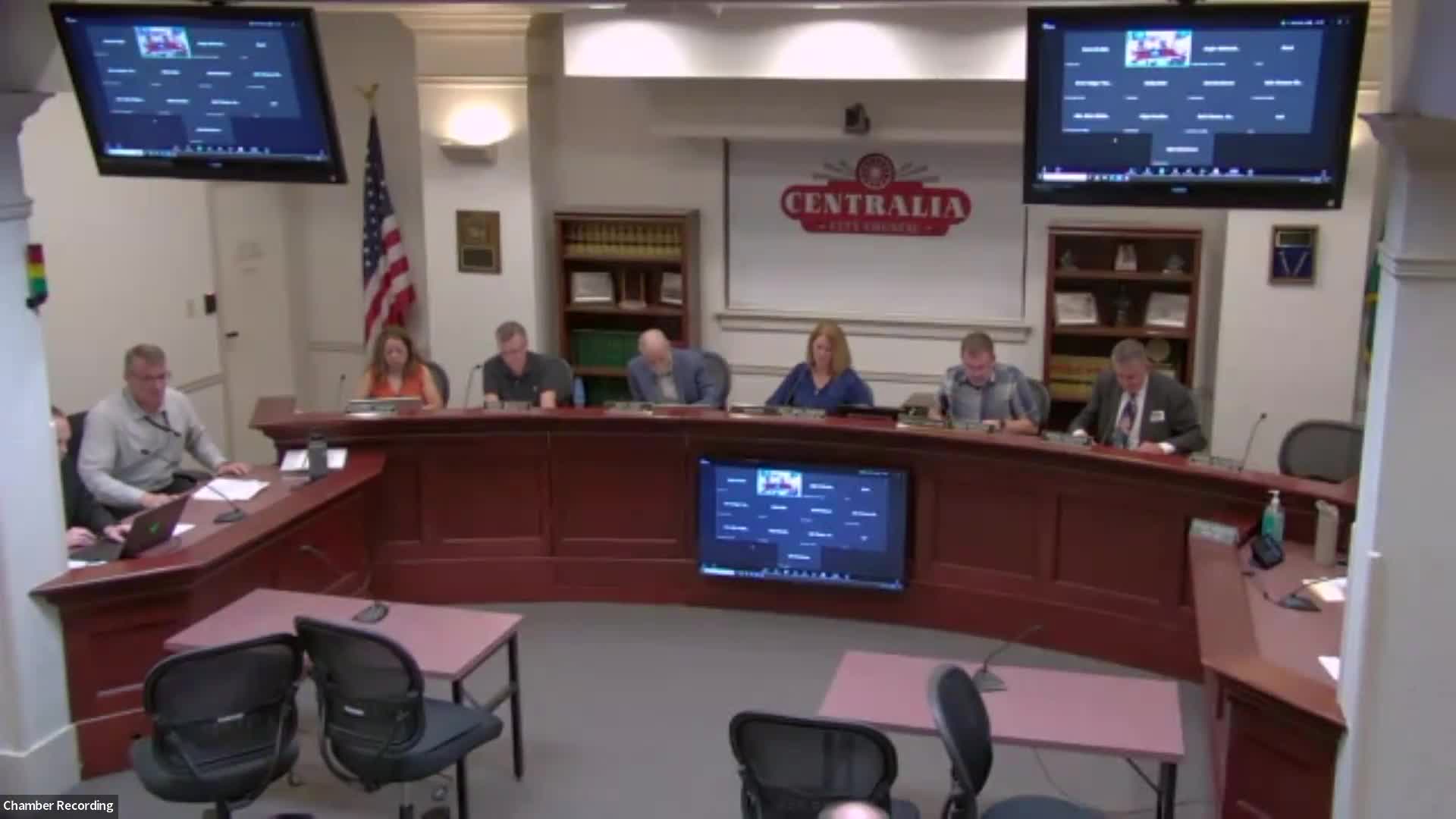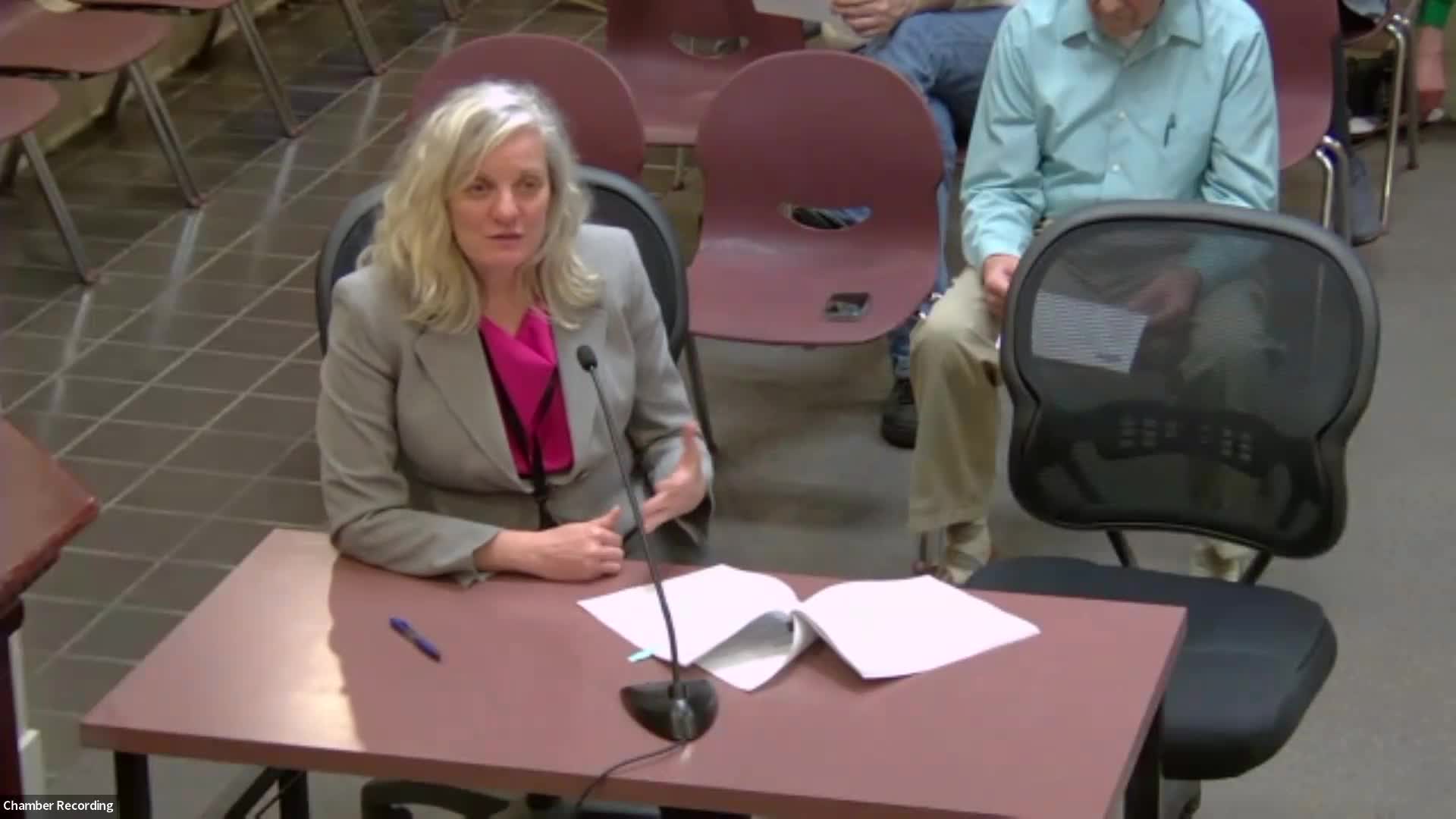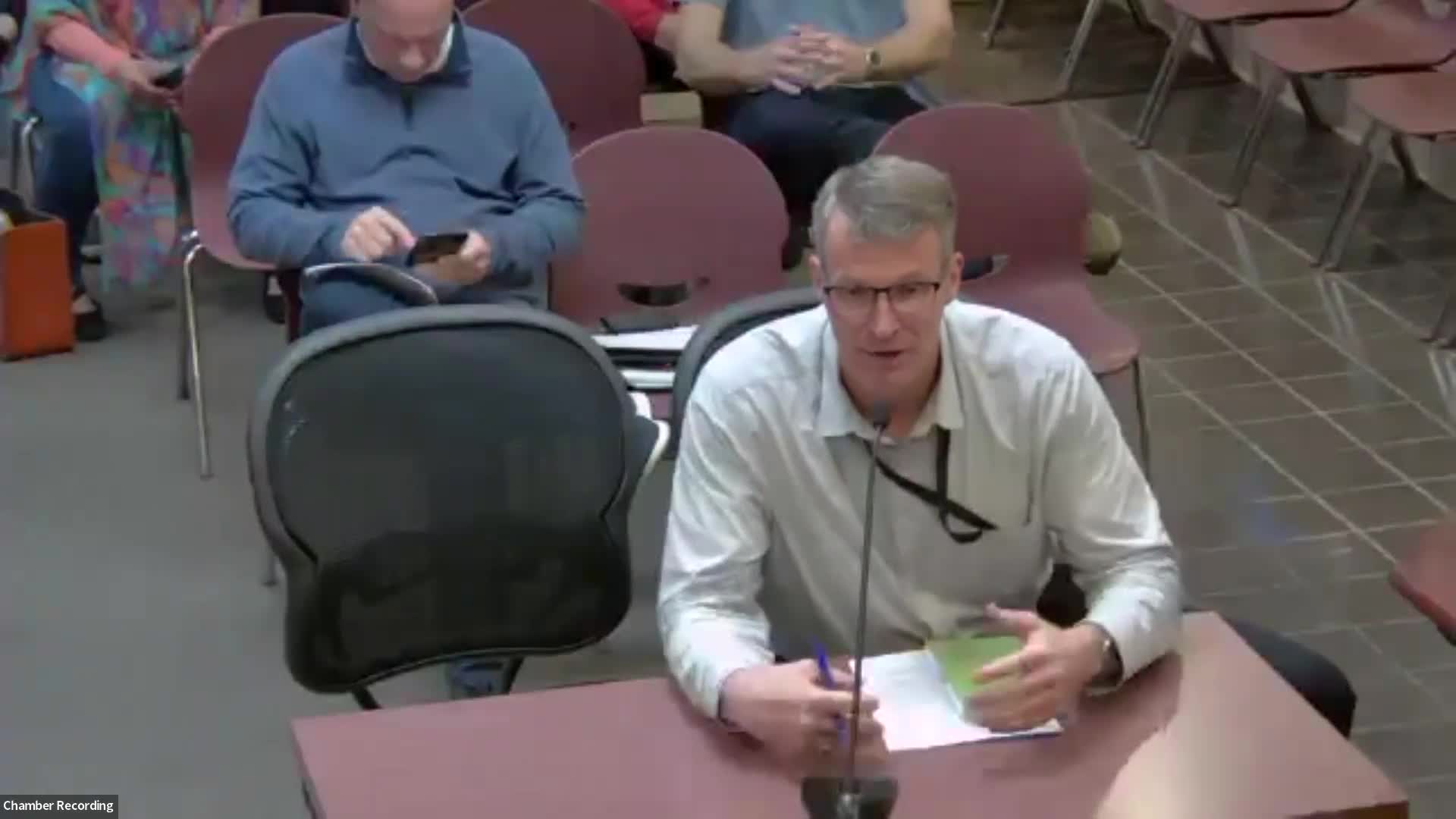Article not found
This article is no longer available. But don't worry—we've gathered other articles that discuss the same topic.

Council votes at a glance: consent agenda, appointments and turf fund pass unanimously

Council approves first reading of ordinance to expand large‑rooftop solar net‑metering rules

Parks director outlines tree removals, arboretum signage and 90‑tree planting tied to Arbor Day grant

Centralia leaders press state agencies after report links game‑farm operations to rising nitrates in local aquifer

